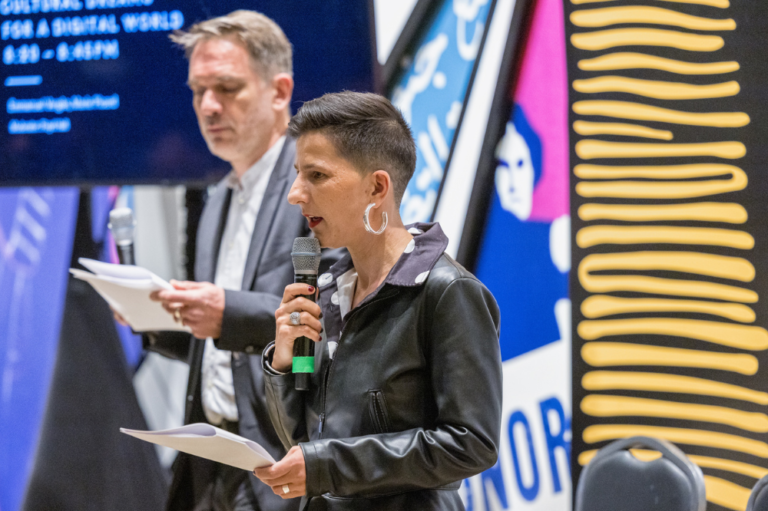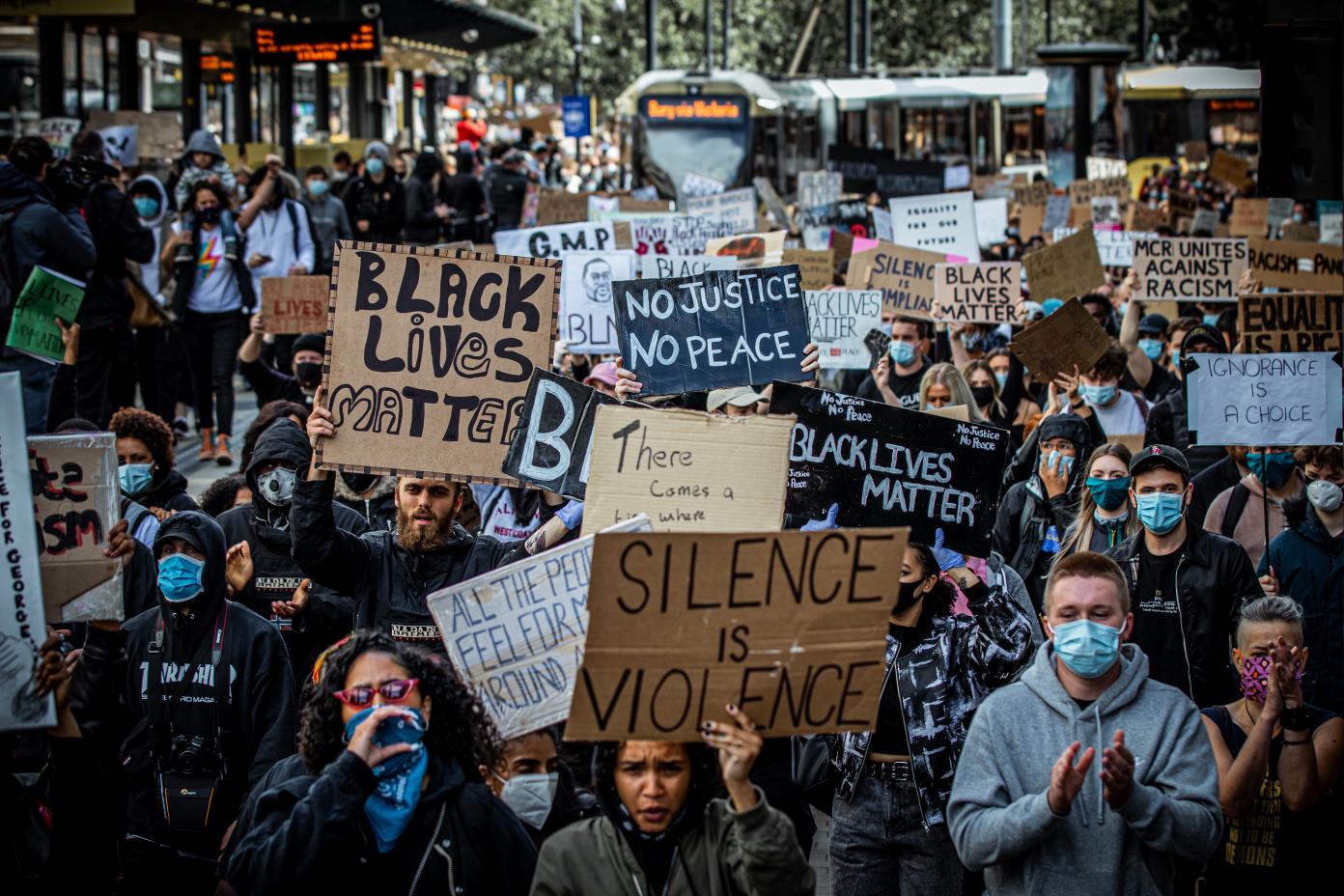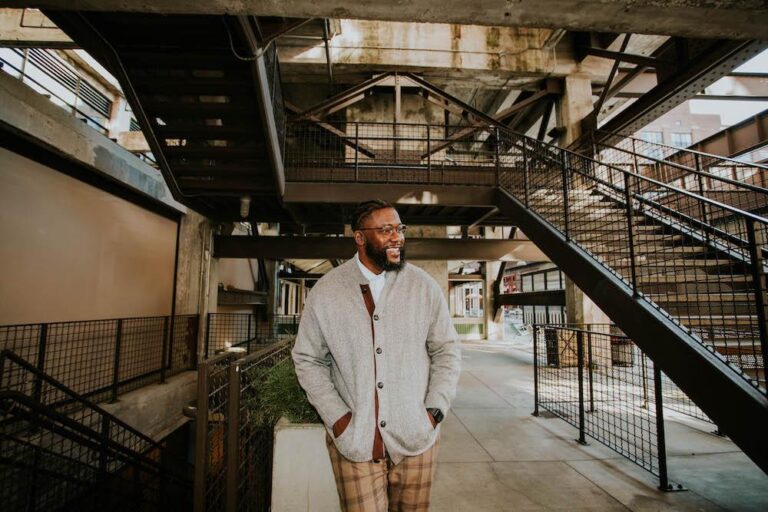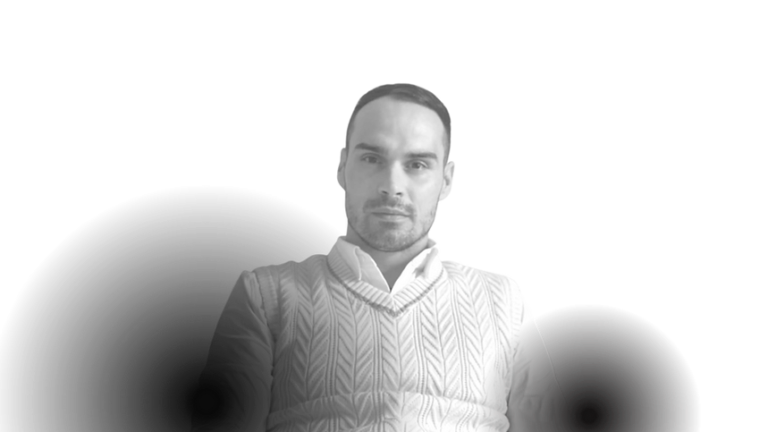
Where Are We Going? Follow James Baldwin’s Lead!

By Magali Bessone
The question posed by the Night of Ideas, “Where are we going?”, firstly demands that we know where we come from. The knowledge of our past is essential to go wherever we want to go. The afro-optimism of American writer and activist James Baldwin may still inspire us today to become a better version of ourselves.
James Baldwin, in his famous letter to his nephew “My Dungeon Shook”, published in The Progressive exactly sixty years ago and in The Fire Next Time in 1963, urges the 14-year-old boy: “Know whence you came. If you know whence you came, there is really no limit to where you can go”. The knowledge of one’s origins is the condition, not only of the dream and ambition, and imagination, of “oh, the places you’ll go”, but of the very capacity of achieving one’s limitless dreams. With knowledge comes power. If you know where you come from, you will have the power to go wherever you set your mind to. If one follows Baldwin’s lead, answering the question “Where are we going?”, formally at least, seems simple enough: we are going where we want to – the only condition is to know “whence we come”. Naturally, beyond the formal limpidity of the reply, in the muddy waters of reality, lie several obstacles. I will simply address three of them here in the hope that Baldwin’s afro-optimism can still guide us today on the road to creating a better version of ourselves.
Who is “we”?
How does knowledge of our past weigh on our identity?
Do we want to go anywhere?
First, we need to question the inclusivity of the collective being, performatively referred to as “we”. Does the first-person plural include you, me, James Baldwin and his nephew? Are “we” all going to the same places, each at our own pace, maybe, but each helping each other when we stumble or get lost on the way, or are some of us not only left behind, but dragged down, locked up, prevented to walk along with the rest of us – are “we” together forming a collective body, willing to share and fairly distribute among us knowledge, power, dreams and opportunities? Baldwin, in the first-person singular, addresses his nephew James, in the second-person singular, and warns him about “them”, their “countrymen”, whose crime is that they don’t know and don’t want to know that they have destroyed “hundreds of thousands of lives” by telling them “where you could go and what you could do and how you could do it” – by crushing any sense of self and personhood in African-Americans. In Baldwin’s United States, exactly one century after Emancipation, “we, the people of the United States” is a very exclusive “we”. Who is “we” today, and more importantly, who gets to decide who is included in or excluded from “we”, and who gets to blissfully (“innocently” says Baldwin) ignore that some people have never been invited to participate in the constitution of the “we” – have been deliberately left out, constructed as non-persons, that there are some people whose voice is, has always been, silenced? If “we” want to go somewhere, the first task before us is to question the construction and delineation of the collective entity “we” want to form and become together. Are “we” the people of the United States, the wretched of the Earth, the human species?
Second, what complicates the matter of knowing who “we” are is that our present condition is narrowly connected to, even dependent on, our acknowledgement of “whence we came”. Knowing where we come from is not simply the condition for going where we want to go, it is more profoundly and ontologically the condition for our very being and wanting. We are what our past deeds, and the reckoning of them, make us. Again in the words of James Baldwin, cited in the documentary film I Am Not Your Negro by Raul Peck: “History is not the past. It is the present. We carry our history with us. We ‘are’ our history”. We don’t get to strike off the past and signed a consensual hypothetical “social contract” that sets, as from a tabula rasa, our conditions for the future. We are constituted by a fabric of intermingling familial, intellectual, and political, stories, values, traditions, beliefs, which form our history – both past events, and the narratives of the past. And what Baldwin sees, very clearly, from his own black positioning, is precisely that Whites are “in effect still trapped in a history which they do not understand”. Our task, today, is to acknowledge, publicly explain, tell, and share “our” history – the history of the dominant majority and oppressed minorities, not because it would allow us to undo the past, erase the crime (which would amount to a desperate attempt to nihilate it), but because it is indispensable to set us all free – to make us who we are, as peers, together taking part in the conversation about us.
And third, asking ourselves where we are going sets a formidable challenge: the question itself presupposes that we are going somewhere; the answer I derive from Baldwin suggests that we can envision a collective, and desirable goal (we are not going simply anywhere), and, given the right epistemic conditions (knowing who we are and whence we come), that we may reach it together. Baldwin writing to his teenage nephew did endorse such an optimistic stance: “it will be hard”, but “don’t be afraid”: “Great men have done great things here and will again, and we can make America what America must become”. Baldwin’s was an afro-optimism, beyond and against despair about black conditions of life, writing to incite his nephew, not an abstract “we”, to fight, resist, create, and walk his own path. The letter is about will power, about instilling the conviction that individuals can “make” decent collective entities if they dare and endure. Sixty years later we need to take a leap of faith and need to convince ourselves that we can want separately and together, as a collective being animated and driven by a unified general will, to be free together. Walking our paths need not be separate or parallel endeavors, and we still “can make ‘us’ what ‘we’ must become” if we understand that the opposite of exclusion is not inclusion but autonomy – common, active, equal participation of all to shape a common political project to which we would all be ready to commit.
Magali Bessone is a Professor at Paris 1 Panthéon Sorbonne and a scholar at the Institute for Advanced Studies, Princeton. She teaches political philosophy and her research focuses on contemporary theories of justice in relation to critical theories of race and racism.
Get Villa Albertine Magazine right in your inbox
